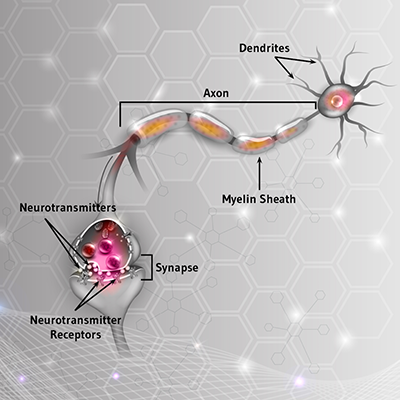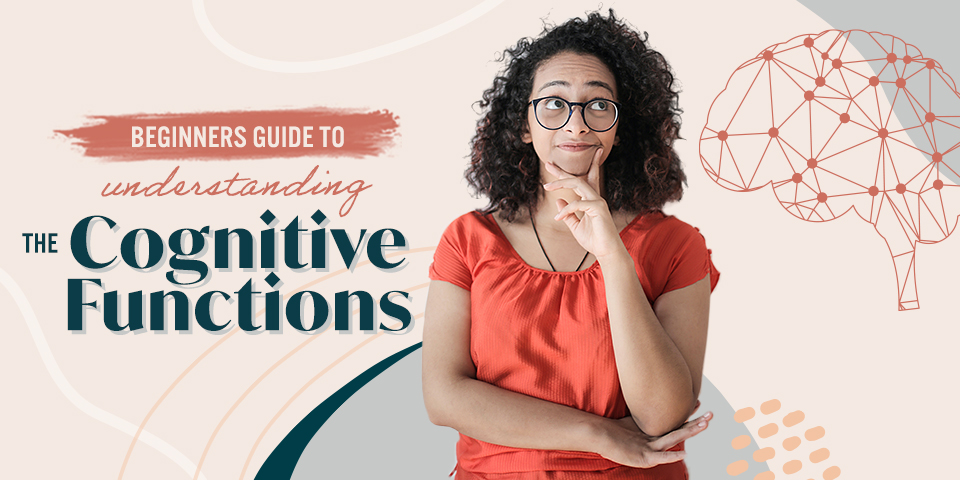How Brain Function, Nutrition, Hydration, and Personality Intersect?
By staying informed and proactive, you can ensure that your mind remains as agile and dynamic as ever. Here's to unlocking the secrets of your cognitive vitality—one healthy habit at a time!
Our brain is our command center. It controls our thoughts, memories, decisions, and emotions. Cognitive function shapes our personality and helps us solve problems. But brain health is not fixed. It changes over time and depends on many factors, like diet, water intake, aging, and how we process information. In this post, we explore brain health from different angles. We look at neuroscience, nutrition, and personality theory to understand how to keep our minds strong.

Understanding Cognitive Function
At its core, cognitive function refers to the mental processes that enable us to acquire knowledge, store memories, and make decisions. Our brains work tirelessly to process sensory information, reason logically, and formulate responses in real time. Whether it’s recalling a cherished memory or solving a complex problem, our cognitive abilities shape our everyday experiences. In the realm of neuroscience, cognitive function is often broken down into specific skills—attention, memory, language, executive function, and processing speed—that allow us to interpret and interact with our environment.
For instance, research featured on ScienceDirect emphasizes that every mental activity—from perceiving sensory data to planning for the future—relies on a network of neural pathways. Meanwhile, the Wikipedia article on cognitive skills explains how these abilities range from basic perceptual processes to advanced reasoning and problem solving. Together, these perspectives remind us that our cognitive faculties are not just abstract ideas but real, measurable aspects of brain function that directly affect our quality of life.
The Role of Nutrition in Brain Health
It might seem surprising, but what we eat plays a critical role in how well our brain functions. Nutrients such as vitamins, minerals, and essential fatty acids are the building blocks that support neural structure and function. The Linus Pauling Institute’s overview on cognitive function explains that a balanced diet not only supports brain development but also helps maintain cognitive performance throughout our lives. For example, deficiencies in B-vitamins or omega-3 fatty acids can compromise neurotransmitter synthesis and neural communication, potentially leading to impaired memory and slower processing speed.
Research shows that diets rich in green leafy vegetables, fruits, whole grains, and lean proteins are associated with better cognitive performance, especially as we age. Antioxidants found in many fruits and vegetables help protect brain cells from oxidative stress—a known contributor to cognitive decline. By fueling our brains with high-quality nutrients, we create a robust foundation for both learning and everyday functioning.
Cognitive Decline, Mild Cognitive Impairment, and Aging
Aging is an inevitable part of life, and with it often comes a gradual decline in cognitive function. However, not all memory lapses or occasional difficulties with attention signal a serious problem. Mild Cognitive Impairment (MCI) represents a stage where changes in memory or thinking skills are noticeable but not severe enough to significantly interfere with daily life. According to Mayo Clinic, MCI is the transitional phase between normal aging and more serious forms of dementia such as Alzheimer’s disease.
The brain naturally undergoes changes as we age—the number of neurons and synapses may decrease, and the efficiency of neural communication might slow down. However, lifestyle factors including diet, physical activity, and mental stimulation can influence the trajectory of cognitive aging. In some cases, proactive measures such as cognitive training or adopting a Mediterranean-style diet have been shown to slow cognitive decline. Early identification and intervention are key: understanding one’s risk factors, such as genetics or vascular health, can guide strategies for maintaining mental sharpness well into later years.
The Impact of Hydration on Cognitive Performance
While nutrition fuels our brain over the long term, hydration plays a vital role in its day-to-day functioning. The human brain is about 60% water, and even mild dehydration can have a noticeable impact on cognitive performance. Recent findings discussed on AlzDiscovery’s blog reveal that when our water levels dip, brain cells must work harder, leading to mental fatigue, reduced attention, and diminished problem-solving abilities.
Studies indicate that a fluid loss exceeding just 2% of body mass can impair executive functions such as decision making, reaction time, and motor coordination. Women, particularly older women, seem to be more vulnerable to these effects. In young adults, replenishing lost fluids often quickly reverses the cognitive deficits associated with dehydration, yet for the elderly or those with limited cognitive reserve, the impact can be more pronounced and longer lasting.
Staying well-hydrated is not only about drinking water; it involves balancing fluid intake with physical activity, environmental conditions, and overall diet. Practical strategies include setting reminders to drink water throughout the day, incorporating water-rich foods like fruits and vegetables into meals, and even monitoring urine color as a rough gauge of hydration levels. The bottom line is that consistent hydration supports not only physical health but also sharp mental performance.
Beyond Brain Health: Cognitive Functions in Personality
Interestingly, the term “cognitive functions” also appears in the study of personality, particularly in the Myers-Briggs Type Indicator (MBTI) framework. While neuroscience focuses on the brain’s abilities to process and store information, personality theory delves into the ways in which individuals prefer to perceive the world and make decisions.
According to "Beginner’s Guide", each personality type is characterized by a set of eight cognitive functions that shape how we interact with our environment. These functions include forms of perception such as sensing and intuition, as well as modes of decision-making like thinking and feeling. For example, someone with a dominant extraverted intuition (Ne) might excel at seeing connections between disparate ideas, while an individual with a dominant introverted sensing (Si) may rely on past experiences to inform their decisions.
The MBTI framework posits that each person has a unique blend of these cognitive functions, which in turn influences their strengths, weaknesses, and overall approach to life. Although this usage of “cognitive functions” is different from the clinical or neuroscientific perspective, both views highlight the diversity of mental processes that contribute to our behavior and personal development.
Integrating Insights for a Healthier Brain and Balanced Life
Given the multifaceted nature of cognitive health, maintaining our mental vitality requires a holistic approach that encompasses proper nutrition, adequate hydration, regular physical exercise, and mental stimulation. Here are some practical strategies to help boost and sustain cognitive function:
- Eat a Brain-Healthy Diet: Prioritize foods rich in antioxidants, omega-3 fatty acids, and essential vitamins. Incorporate plenty of fruits, vegetables, whole grains, nuts, and lean proteins into your meals. Such foods not only nourish your body but also protect your brain from oxidative damage and inflammation.
- Stay Hydrated: Make a conscious effort to drink water throughout the day. Consider carrying a reusable water bottle and setting reminders if you tend to forget. Remember that hydration isn’t just about water; include water-rich foods such as cucumbers, oranges, and melons in your diet.
- Engage in Regular Physical Activity: Exercise has been shown to stimulate the growth of new neurons and improve synaptic plasticity. Whether it’s brisk walking, cycling, or strength training, regular movement is essential for maintaining both physical and mental health.
- Keep Your Mind Active: Challenge your brain with activities like puzzles, reading, or learning a new skill. Engaging in cognitive exercises can enhance neural connections and delay the onset of cognitive decline. Even hobbies like playing musical instruments or learning a new language can provide significant cognitive benefits.
- Manage Stress: Chronic stress can impair memory and cognitive function. Techniques such as mindfulness meditation, deep breathing exercises, and yoga can help manage stress levels and improve overall mental clarity.
- Prioritize Sleep: Quality sleep is crucial for cognitive function. During sleep, the brain consolidates memories and clears out toxins. Aim for 7–9 hours of restful sleep each night and establish a regular sleep schedule to support your brain’s restorative processes.
- Understand Your Cognitive Strengths: Reflect on your personality and how you process information. Whether you lean more toward intuitive insights or rely on concrete data, understanding your own cognitive preferences—as highlighted in personality frameworks like MBTI—can help you tailor your learning and decision-making strategies. If you want to find out who you are according to MBTI, take the test here.
Navigating Cognitive Challenges as You Age
As we age, even small changes in cognitive function can affect our daily lives. It's important to spot issues like mild cognitive impairment (MCI) early. If tasks take longer than usual or you struggle to remember recent events, talk to a healthcare provider. Early intervention, such as cognitive therapy, diet changes, and sometimes medication, can help slow cognitive decline.
Recent research shows that cognitive decline isn't an unavoidable part of aging. Studies have found that physical exercise and cognitive training can improve mental performance. For example, regular exercise benefits heart health and also supports the growth of new brain cells in areas important for memory and learning. By maintaining a healthy diet, staying active, hydrating, and challenging the mind, older adults can boost their cognitive health and enjoy a better quality of life.
Exploring the Intersection of Nutrition, Hydration, and Cognitive Resilience
The relationship between nutrition, hydration, and brain health is a dynamic interplay that shapes our cognitive resilience. Consider the following insights:
- Nutritional Synergy: The brain’s demand for nutrients is complex and interconnected. For instance, antioxidants found in berries and leafy greens work synergistically with omega-3 fatty acids from fish or flaxseeds to reduce inflammation and oxidative stress. This collaboration helps protect the brain’s delicate neural networks and supports effective neurotransmission.
- Hydration as a Catalyst: Adequate hydration not only ensures optimal cellular function but also facilitates the transport of nutrients throughout the body. When dehydrated, the brain must expend extra energy to perform routine tasks, which can lead to mental fatigue and reduced efficiency. Maintaining a proper fluid balance helps keep the brain operating at peak performance, particularly during demanding cognitive tasks.
- Holistic Lifestyle Choices: Adopting a lifestyle that supports both nutrition and hydration can have cumulative benefits for cognitive health. For example, combining a nutrient-dense diet with regular physical activity creates a positive feedback loop where each component reinforces the other. Exercise increases blood flow to the brain, which in turn enhances nutrient delivery and waste removal, further supporting cognitive function.
A Glimpse into How Personality Shapes Our Cognitive Processes
Our brain’s health is important, but the way we think also depends on our personality. The Myers-Briggs personality theory explains how people process information in different ways.
For example, some people focus on the present and notice small details around them. This helps them make quick decisions and react fast. Others prefer to think deeply about the future, using their past experiences to understand complex ideas and make long-term plans.
By learning about these thinking styles, we can better understand our strengths and weaknesses. Knowing whether you are more logical or creative can help you in school, work, and relationships. While personality and brain science are different fields, both show that our thinking is shaped by our biology, environment, and experiences.
Practical Tips for Enhancing Your Cognitive Vitality
Achieving and maintaining cognitive vitality is not about one single change—it’s about creating an environment that nurtures your brain every day. Here are some practical, everyday tips to boost your cognitive health:
- Plan a Balanced Diet: Design your meals around whole, unprocessed foods. Experiment with recipes that incorporate a variety of fruits, vegetables, whole grains, and healthy fats. A Mediterranean-style diet, for example, has been linked to better brain health and may reduce the risk of cognitive decline. For more information on nutrient-rich foods and brain health, check out the study.
- Stay On Top of Hydration: Keep a water bottle within reach at work, home, or when you’re on the go. Set periodic reminders on your phone to take a sip, especially during long hours of mental work. Monitoring your hydration not only keeps your body functioning optimally but also supports your cognitive clarity.
- Exercise Regularly: Aim for at least 30 minutes of moderate exercise most days of the week. Activities like brisk walking, cycling, or even yoga can increase blood flow to the brain, improve mood, and enhance memory. Research consistently shows that physical activity is one of the best investments you can make for long-term cognitive health.
- Challenge Your Mind: Stimulate your brain with activities that require focus and creativity. Whether it’s solving puzzles, learning a new language, or engaging in a hobby like playing a musical instrument, keeping your mind active helps build cognitive reserve. This not only sharpens your memory but also makes you more resilient to the effects of aging.
- Prioritize Sleep: Establish a regular sleep routine to ensure you’re getting 7 to 9 hours of quality sleep each night. Sleep is essential for memory consolidation and clearing toxins from the brain. A good night’s rest can make a profound difference in your ability to concentrate and process information the next day.
- Manage Stress Effectively: Chronic stress can take a heavy toll on both mental and physical health. Incorporate stress-management techniques into your daily routine—such as meditation, deep breathing exercises, or even short breaks during the workday—to help keep stress at bay and protect your cognitive function.
- Know Your Cognitive Style: Understanding your own personality and cognitive preferences can offer insights into how you learn best and make decisions. Explore personality assessments like the MBTI to see which cognitive functions dominate your thinking. Resources like Truity’s guide can help you understand whether you lean toward intuitive insight or prefer concrete, detail-oriented thinking.
Final Thoughts
Keeping your brain sharp isn’t about just one thing—it’s the result of a healthy, well-rounded lifestyle. Everything matters, from the food and water we consume to our daily habits and personality traits.
As we age, it’s important to notice early signs of memory or thinking problems and make healthy changes to slow them down. A good approach includes taking care of your body, staying mentally active, and finding activities that bring joy and relaxation.
Looking at brain health from different angles—like medical research or personality traits—helps us understand how thinking and memory work. Our strengths and challenges come from many factors, and knowing this gives us the power to improve our mental well-being.
In today’s busy world, keeping your brain healthy isn’t just a nice idea—it’s essential. Whether you’re a student, a worker, or just someone who wants to think clearly and stay sharp, taking care of your mind is a journey worth investing in.
Sources:





Also check out this link:





